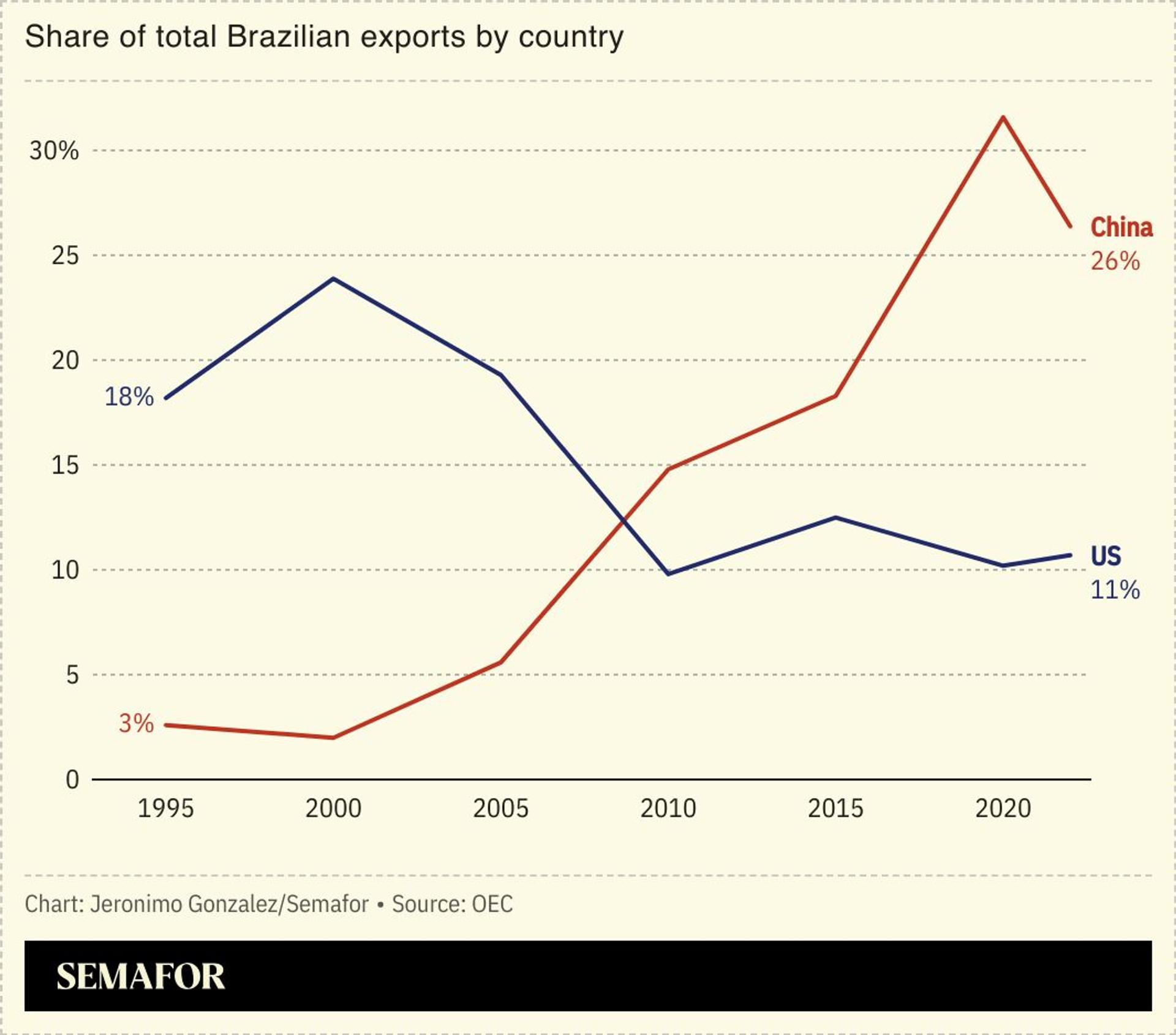The News
Brazil’s agriculture minister said the country should join China’s Belt and Road Initiative as a way to counter protectionism in the US and EU.
Beijing’s global trade and infrastructure program involves building a vast network of railways, energy pipelines, and ports globally, with around 150 countries already having signed onto projects or expressed interest in doing so.
Washington has warned that some Belt and Road infrastructure could be leveraged for military purposes by Beijing: Speaking at a conference in São Paulo, US Trade Representative Katherine Tai warned Brazil to “really think about what the best pathway is.”

SIGNALS
US protectionism risks inflating China’s dominance
Brazilian officials see joining China’s global trade and infrastructure program as a way to de-risk from both the US — which could impose more tariffs on Beijing should Donald Trump win the presidency — and Europe, which Latin America has unsuccessfully courted for a free trade agreement. Already, US tariffs on steel have meant that Chinese exports have begun undercutting the Latin American domestic market, the Financial Times wrote. However, at the same time, some Latin American nations are willing to ignore this in return for the large infrastructure loans that come with Belt and Road membership, the Council on Foreign Relations noted, even with the security risk of China then single-handedly controlling nations’ ports and energy infrastructure.
China courts Latin America’s big economies
The US and China have been battling for economic influence in Latin America. Beijing is currently the top trading partner for Brazil, Chile, and Peru, giving the Asian giant unparalleled access to the region’s soybean, iron ore, and copper resources, Bloomberg wrote. The region also “plays a crucial role” in China’s efforts to politically isolate long-time enemy Taiwan, said the European University Institute. With over half of Taiwan’s remaining diplomatic allies being in Latin America, it is possible that investing in the continent will encourage nations to abandon Taiwan and “promote a more favorable image” of China overseas.

